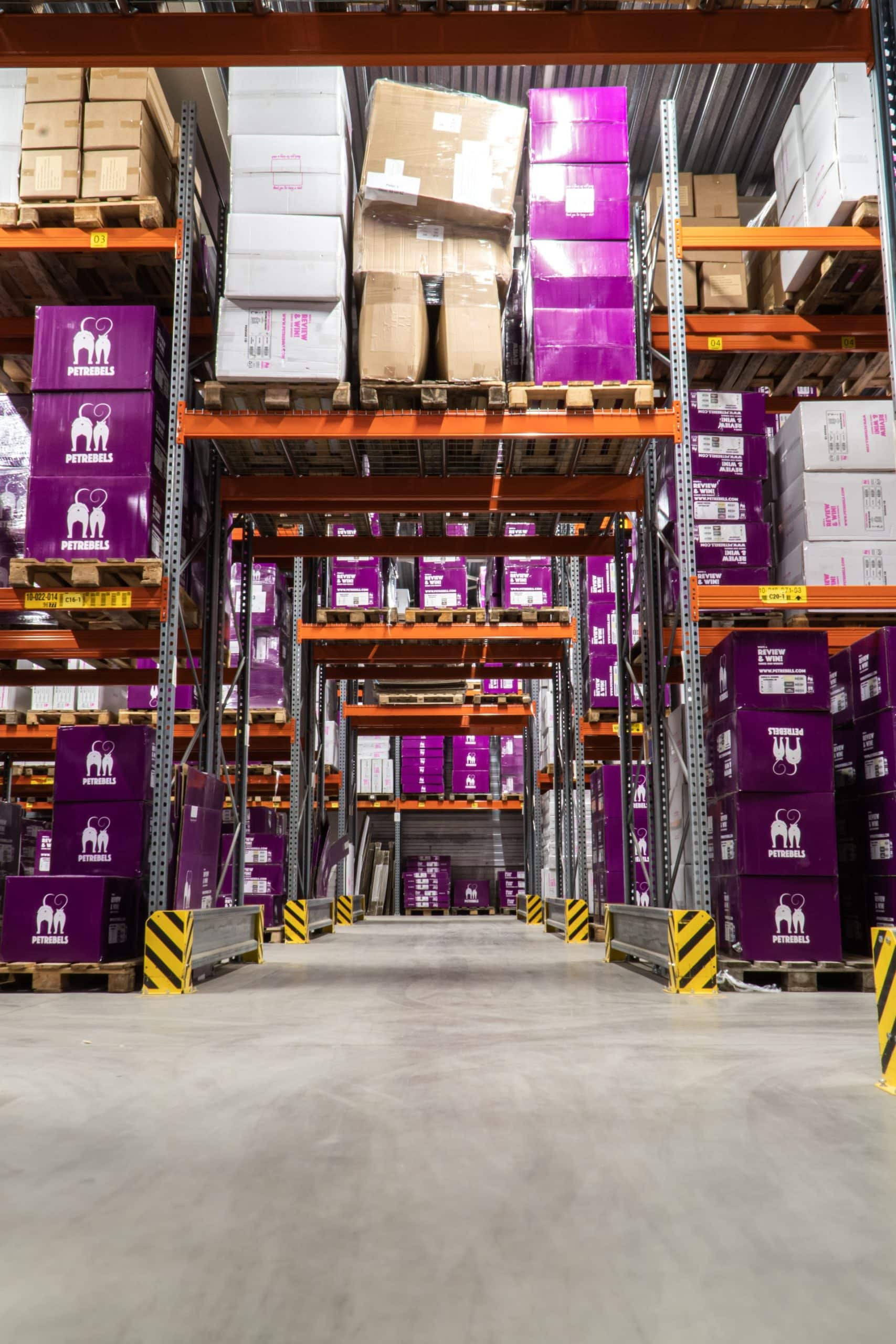We’re not going to sugarcoat it. Managing inventory is hard — and nailing your forecast accuracy? That’s probably the hardest part of all. From varying lead times to unforeseeable supply chain issues, it’s no surprise so many ecommerce retailers struggle to balance stock levels.
In fact, US retailers hold on to a whopping $1.43 in stock for every $1 they make, while the average days-in-inventory rose by 8.3% during the five-year period between 2009 and 2014 alone. Yikes.
You can bet that most of these inventory issues come down to a lack of forecast accuracy. Without the right tools and strategies, stockouts and overstocks become an everyday problem, meaning an increase in lost sales and cash flow issues.
But here’s the good news: Inventory optimization can help you forecast more accurately and achieve the right inventory to sales ratio, so that you can finally wave goodbye to stock problems for good. Today, we’ll explain exactly how to capitalize on inventory optimization to drive revenue and profits for your store (and how Flieber can help 😉).
IMAGE: UNSPLASH
The Problem With Standard Inventory Forecasts
You know that improving your forecast accuracy is key to nailing your inventory levels, but how does it actually work? Two words: Inventory optimization.
Inventory optimization unites all the right data on your stock levels and product sales analyses to help you maintain optimal inventory levels. Most forecasting solutions aren’t built to align inventory optimization’s two key components: inventory availability and product sales pace.
While they do some things right, most off-the-shelf inventory forecasts fall short because they lack the following:
- Detailed data that help build reliable forecasts, like cyclicality and seasonality assessments.
- The algorithms required to accurately piece together product-specific sales patterns and shopper behaviors.
- Tools and features that eliminate false zeros, extreme market fluctuations, price variations and other outliers.
- The visibility to see what’s going on with their store’s multi-channel sales, inventory and supply chain.
Too often, the outcome of using these tools is unreliable forecasts, leading to automated restock reminders that don’t always reflect your store’s actual needs, leading to…you guessed it: more stockouts and overstocks.
Worse still, some of the ‘more sophisticated’ tools lump all your data together and leave you to decide your next steps — a huge burden when you’ve got a growing business to run. But it doesn’t have to be this way.
The right inventory optimization solution can help you get ahead by doing all the data crunching and heavy lifting for you. Plus, it can remove the restocking guesswork so you can reorder with confidence and precision.
Psst! Did you know that 97% of online retailers find supply chain boring? Here are three simple ways to use it as a company growth lever.
Inventory Optimization + 40% More Accurate Forecasts = Ultimate Brand Growth
Inventory optimization and reliable forecasts go hand-in-hand. Done right, this ultimate duo can skyrocket your forecast accuracy and positively impact other parts of your business too, leading to reduced stockouts and overstocks.
Let’s take a closer look at how better forecasts and optimized inventory can help you scale your brand.
Treasure In, Treasure Out
In the world of data science, there’s a common saying: Garbage in, garbage out.
In other words, your outputs are only as good as your inputs. If you start with clear, accurate data your forecast accuracy should continually improve as you feed more information into your forecasting models. This way, predictions become more and more reliable over time.
Flieber uses machine learning and advanced algorithms to reduce inaccuracies like:
- False zeros
- Market fluctuations
- Price changes
- Sales outliers
We’ll explore each one of these factors individually later in this article. But for now, it’s also worth noting that in addition to accounting for outliers and extreme events — Flieber analyzes and groups over 300,000 products and 20 million sales orders to define the core sales patterns that match the actual behavior of your products.
The result is a forecast accuracy that is, on average, 40% more accurate than most.
Don’t Toss A Coin On Your Business
Without flawed data impacting your forecasts, you’ll be able steer clear of stockouts and trapped capital due to overstocks. In fact, many forecasting methods have accuracy levels little better than a coin flip. Our research revealed companies that opt for a 30-day moving average had accuracy rates averaging at just 57%.
With Flieber, we can achieve accuracy rates of above 80%. The difference in terms of hard business benefits is impossible to ignore:
- Freer capital vs. deadstock that holds your cash hostage
- Fewer stockouts vs. extended stockout periods
- Happy and positive reviews vs. angry customers and negative reviews
- Increased sales and repeat revenue vs. lost sales and market share
- Better product rankings vs. irreversible reputational damage
Poor or surface-level forecasting methods force you to gamble your business’ future. But luckily, you don’t have to follow the herd.
Inventory Optimization Done Right – Flieber’s Secret Sauce
For an accurate forecast, you need accurate data.
While most inventory solutions lack the functionality to manage the effects of change, Flieber cleans and polishes your data with deep machine learning and AI algorithms, so that you get better accuracy every time.
Here’s how it works:
- False zero substitution: Flieber identifies the times your store experienced a stockout and adds the sales you should have had that day. The false zero substitution feature prevents you from interpreting the lack of sales as seasonality and suggesting you delay reordering, leading to more stockouts.
- Price normalization: Our algorithms remove anomalies and normalize your data by price. By acknowledging your products’ price sensitivity using your past sales history (up to five years), Flieber ensures consistent data is fed into your forecast from day one.
- Outlier identification: An outlier is an event that occurred only once in your store and wasn’t motivated by anything internal (e.g., an Amazon listing suspension). Our platform assesses whether outliers are caused by price issues, stockouts or any other problem, and then levels out your data for greater forecast accuracy.
- Covid adjustment: The pandemic has been a wild ride for the ecommerce industry, causing some companies to experience huge unexpected fluctuations. Flieber helps pinpoint the pandemic’s effects on your forecasts, so you can adjust them to fit their regular (pre-pandemic) sales to avoid overstocks, understocks and near-misses.
The Blueprint For Profitable Inventory Optimization
Managing inventory with manual tools is tough. No matter how much time you put into basic tools, you’ll never get the full visibility you need to make the right choices. But with a solution that allows full inventory optimization and improved forecast accuracy, you’ll know exactly how and when to scale your ecommerce store efficiently.
Because forecast accuracy can make or break your store, but with a solution like Flieber in your arsenal, there’s no need to worry about wasting hours manually measuring your forecast accuracy or second-guessing your inventory decisions.
You can take decisive steps knowing you’ve got solid, clean data to back your actions. Plus, you’ll gain the freedom to focus on the important stuff, so you can grow your business to new heights.
Ready to make the leap from inventory management to optimization? Let Flieber help.
If you are interested in even more business-related articles and information from us here at Bit Rebels, then we have a lot to choose from.


COMMENTS